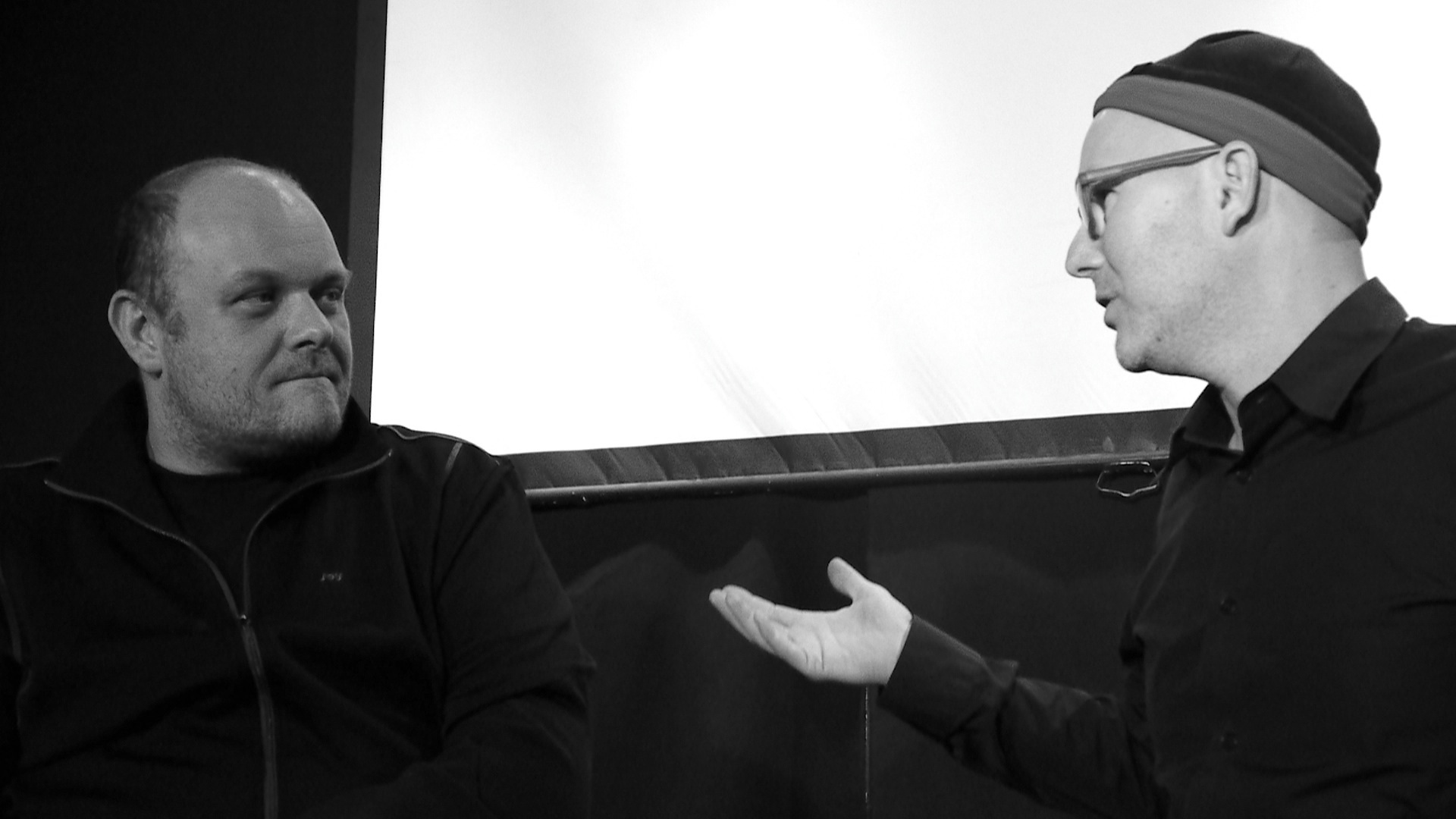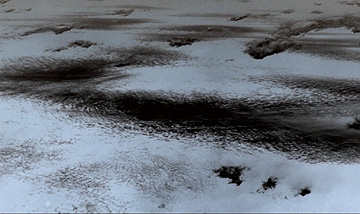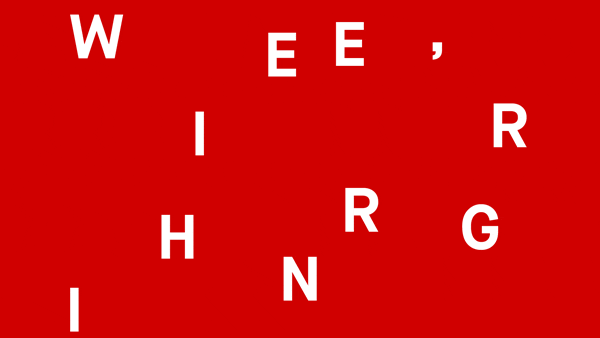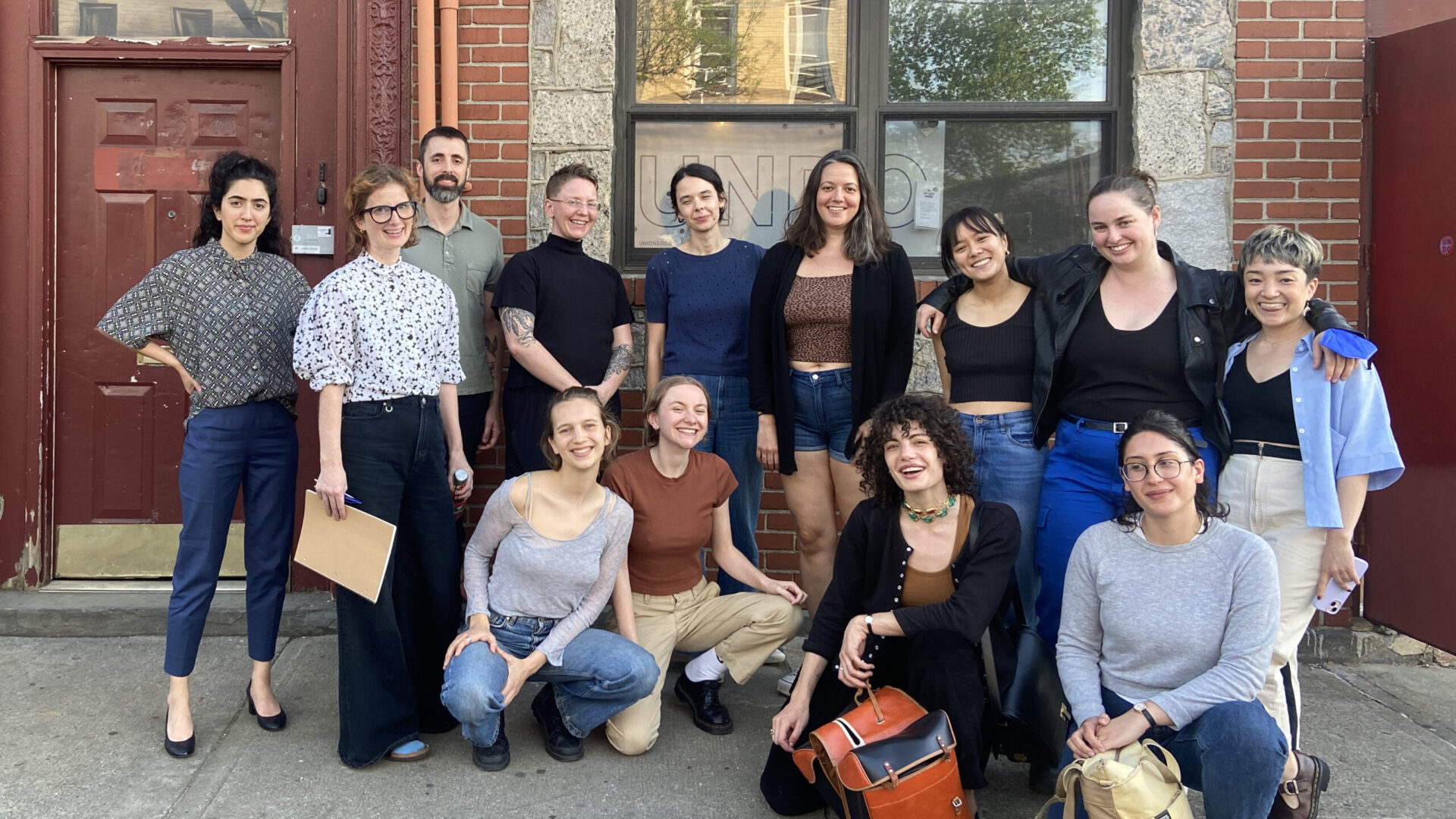
BM: Right, I remember that Christian Marclay said about his masterpiece The Clock (2010) that he was two years into the research before he even knew that it was or would be possible to try to represent 24 hours. Did you have any moment like that?
MK: Of course! It took me five years! In the beginning I just wanted to do this research. I didn’t have the idea of making a movie out of it. I just wanted to maybe edit some passages, like bits of it, and then do something with it. But then I ended up editing the project. It took me only two weeks. While I was researching, the moment came when I said: Ok, now let’s make a movie out of it! So I was putting the whole movie together in my head and then the act of doing it was just two weeks.
online BM: It’s interesting that you say when you were watching the news, that that shot reminded you of a movie, because it brings to mind two equal and opposite things: how the news mediates images and life, and echoes the film. We can’t say for sure or be certain that the news cameraman who shot that shot had seen Godzilla, but we do know that there are only certain angles that you could ever shoot the World Trade Center from anyway.
MK: But I think that the images, or most of the images, look the same for a simple reason: Once you see an event like this, that has incredible visual power, you immediately choose angles that you are unconsciously familiar with (laughs). You take the Brooklyn Bridge from below, you have this incredible angle, and so on.
BM: I’ve heard Europeans and people who are not from New York and come to New York for the first time and say that they feel like they are in a movie, because they have seen so many of these angles before. Of course 9/11 was maybe the most widely reported event of our time and it does raise the question of, as you always say: ‘if you could have dreamt it, it could have happened’. By the same token, ‘if you can make a movie out of it, it could happen’. Your movie suggests to me anyway that because these images are out there, they could have inspired the attack in some way, and that these types of catastrophes are images that already exist in the popular consciousness, and therefore are self-fulfilling prophecies.
Pills MK: The point is that every event that has such incredible power as 9/11 could have been re-enacted with images from movies. In that case, it makes sense because it was so visually astonishing! But I’m sure that the London bomb attacks, for instance, could have been re-enacted with images too.
BM: My own experience is that I was living in an apartment on East 7th street at that time. I was looking at the towers as they were on fire, and it was so hard for my eyes to take that in that I would go downstairs to watch it on television to try to make sense of it. And then that seemed too static, so I would go upstairs. I started to feel like a mouse in a treadmill or something running up and down. Anyway, a very powerful piece, and because we’re in New York, I wanted to open this one up to questions.
Audience Member #1: While watching that piece, I was wondering what your process is as far as the score goes for your films: Are you editing them and then there’s a score or is it a collaborative process?
MK: More a collaborative thing and depending on the project. For Just like the Movies, I used three pieces by a composer that existed. I took them and edited this rough cut to the music and then I edited some of the parts without music and Paolo (Marzocchi) made music to the edit. So the project was like just two weeks of editing. For Paolo, because he made the music with the piano, it took him only two weeks to compose the whole score. It was a collaborative work where it happened at the same time. Whereas for example the feature film Zero Killed, that is premiering January 23, was fully done with layout music and Paolo did the whole soundtrack afterwards to the movie in a more traditional sense. So it depends on the approach, on the project, on how the idea progresses. Then I choose how I want to work with the music. But the music is very important to me in my films. Without music, I just feel like I’m missing something.
Audience Member #1: I got the sense that it was a very important component to all your work, that is why I was curious. And even in the case where Paolo or another composed scores afterwards, do you use a scratch track to edit to or some temporary music?
MK: Yes, I like to layout to music. I use some other composers sometimes.
BM: And would you let that composer hear that music that you’ve been using?
MK: Sometimes (laughs), sometimes it’s a secret, I keep it for myself and for Paolo. But I like very much to edit to the music, this is my favorite action.
http://ccic.yuntech.edu.tw/?p=9343
Watch Deep Water Horizon, (2010), 9 min.






